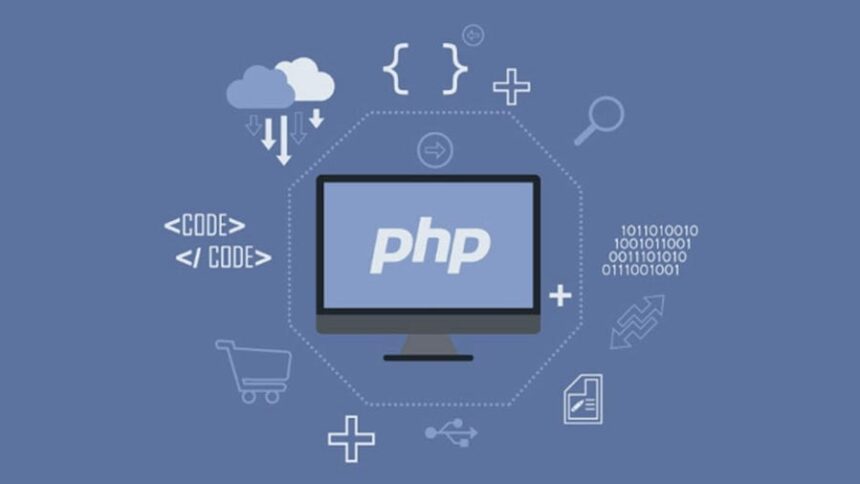PHP (Hypertext Preprocessor) has been a cornerstone of web development for decades. As one of the most widely used server-side scripting languages, PHP plays a crucial role in creating dynamic, interactive, and scalable websites. Whether you are an aspiring developer or a business owner looking to understand the technical side of your website, knowing how PHP works and its benefits is essential for success in today’s digital world.
In this article, we will explore the importance of PHP in web development, how it works, and why it remains a vital tool for developers and businesses alike.
What is PHP?
PHP is an open-source, server-side scripting language primarily used for web development. Originally created by Rasmus Lerdorf in 1993, PHP has evolved into a powerful tool that can be embedded into HTML to create dynamic web pages. Unlike static websites, which display the same content to every user, PHP enables websites to interact with databases, manage session states, and perform complex operations in real-time.
PHP is versatile, easy to learn, and supports multiple operating systems, making it a top choice for developers worldwide. The language can be used in conjunction with various databases, including MySQL, PostgreSQL, and SQLite, to store and retrieve data dynamically.
Why is PHP So Popular?
There are several reasons why PHP has remained a dominant language in web development, despite the rise of other technologies. Here are some key reasons behind its enduring popularity:
1. Open Source and Free
One of the most significant advantages of PHP is that it is open-source and completely free to use. This eliminates licensing costs and allows developers to access the source code, modify it, and share improvements with the community. This open-source nature has led to widespread adoption and an ever-growing repository of libraries, frameworks, and tools that can be used to streamline development.
2. Flexibility and Versatility
PHP’s flexibility allows developers to create a wide range of applications, from simple websites to complex, data-driven web applications. It is not tied to any specific platform, meaning it can be used on various servers and operating systems, including Windows, macOS, and Linux. This versatility makes it ideal for both small and large projects.
3. Large Developer Community
With millions of developers using PHP worldwide, the language benefits from an active and vast developer community. This community provides a wealth of resources, tutorials, forums, and third-party libraries, making it easier for developers to troubleshoot issues and find solutions. Additionally, the large community ensures that PHP stays up to date with modern best practices and new technologies.
4. Wide Platform Support
PHP works seamlessly with many platforms and can be integrated into existing systems with ease. Popular content management systems (CMS) like WordPress, Joomla, and Drupal are built using PHP, making it even more attractive for developers. Additionally, PHP can run on most web servers, including Apache and Nginx, providing flexibility in terms of deployment.
How Does PHP Work in Web Development?
PHP is primarily used for server-side scripting, meaning that it runs on the web server rather than in the user’s browser. When a user accesses a PHP-powered website, the server processes the PHP code and sends the resulting HTML to the browser for display.
Here’s how PHP typically works in the context of a web page request:
- User Request: A user requests a page from a website by entering a URL in their browser.
- Server-Side Processing: The web server identifies that the requested page contains PHP code. It sends the request to the PHP interpreter, which processes the code.
- Database Interaction: If the page requires data (such as user information or blog posts), PHP can query a database, retrieve the data, and format it for the user.
- HTML Generation: Once the PHP code is executed, the server generates HTML and other resources, such as CSS or JavaScript, and sends them back to the user’s browser.
- Rendering: The browser renders the HTML and displays the page to the user.
This process allows PHP to create dynamic content tailored to the needs of each user, making it ideal for e-commerce websites, social media platforms, and any other website requiring personalized experiences.
Common Uses of PHP in Web Development
PHP’s flexibility means it can be used for various purposes in web development. Here are some of the most common uses:
1. Building Content Management Systems (CMS)
One of the most popular uses of PHP is in creating content management systems (CMS) such as WordPress, Joomla, and Drupal. These platforms allow users to manage content on their websites without needing any coding knowledge. PHP powers the back-end of these CMS platforms, handling tasks like database queries, user authentication, and content rendering.
2. E-Commerce Development
PHP is a powerful tool for building e-commerce websites. With frameworks like Magento, WooCommerce (built on WordPress), and PrestaShop, developers can create feature-rich online stores that support payment gateways, inventory management, and customer profiles. PHP’s ability to interact with databases makes it an ideal choice for handling products, orders, and customer information.
3. Web Applications
PHP is often used to build web applications that require dynamic content and real-time interaction with users. For example, social media platforms, forums, and project management tools often rely on PHP to handle user input, process data, and update the content in real-time. Frameworks like Laravel and Symfony provide developers with the tools to build scalable and secure web applications.
4. Database-Driven Websites
PHP is commonly used to build database-driven websites that require user-generated content, such as blogs, forums, and review sites. By connecting to databases like MySQL, PHP can retrieve and display content based on user requests. PHP’s ability to manage user sessions also makes it ideal for applications requiring user authentication, such as online banking or e-learning platforms.
Advantages of Using PHP in Web Development
PHP offers several advantages for developers and businesses looking to create powerful websites and applications:
1. Ease of Use
PHP has a relatively simple syntax, making it accessible for beginners. It’s easy to learn and has a wealth of resources available online for anyone looking to get started. Additionally, PHP’s integration with HTML allows developers to embed code directly into web pages, reducing the need for separate files or complex structures.
2. Cost-Effective
Since PHP is free and open-source, businesses and developers can avoid expensive licensing fees. PHP’s low cost makes it an attractive option for startups and small businesses looking to build custom websites or applications without breaking the bank.
3. Scalability
PHP is highly scalable, meaning it can handle growing websites and applications as traffic increases. Whether you’re running a small blog or a large-scale enterprise application, PHP can scale to meet your needs by leveraging caching mechanisms, load balancing, and other optimization techniques.
4. Security Features
PHP offers various security features that can be used to protect websites and applications from common web vulnerabilities. By following best practices and using built-in security features like data sanitization, prepared statements, and encryption, developers can create secure websites that protect sensitive user data.
5. Performance
PHP’s performance has improved significantly over the years. Modern versions of PHP, such as PHP 7 and PHP 8, offer significant speed improvements compared to older versions. PHP’s ability to process requests quickly and efficiently makes it ideal for high-traffic websites and applications.
PHP Frameworks: Tools for Efficient Development
PHP frameworks are libraries that provide a set of tools and best practices to help developers build web applications faster and more securely. Some of the most popular PHP frameworks include:
- Laravel: Known for its elegant syntax and powerful features, Laravel simplifies common tasks such as routing, database queries, and authentication. It is ideal for building modern web applications.
- Symfony: Symfony is a robust, flexible framework that is often used for large-scale enterprise applications. It offers reusable components and a modular architecture.
- CodeIgniter: A lightweight framework that provides a simple toolkit for building dynamic web applications, CodeIgniter is known for its ease of use and speed.
Using a framework can help developers avoid reinventing the wheel and speed up the development process by offering pre-built modules for common tasks.
Future of PHP in Web Development
Despite the rise of newer technologies and frameworks, PHP continues to evolve and remain relevant in modern web development. With each new version, PHP introduces performance improvements, enhanced security features, and new functionalities that help developers build more powerful and secure websites.
Moreover, PHP is widely supported by hosting providers, and it works seamlessly with other technologies such as JavaScript, HTML, and CSS. As long as websites and applications continue to require server-side processing, PHP will remain a crucial part of web development.
PHP is an indispensable language in modern web development, providing developers with the tools they need to build dynamic, interactive, and scalable websites and applications. Whether you are building a simple blog or a complex e-commerce platform, PHP offers the flexibility, ease of use, and performance necessary for success.
Its widespread adoption, extensive community support, and constant evolution make PHP a language that will remain at the forefront of web development for years to come. If you’re looking to develop a website or web application, understanding PHP’s role and benefits will give you a significant advantage.

